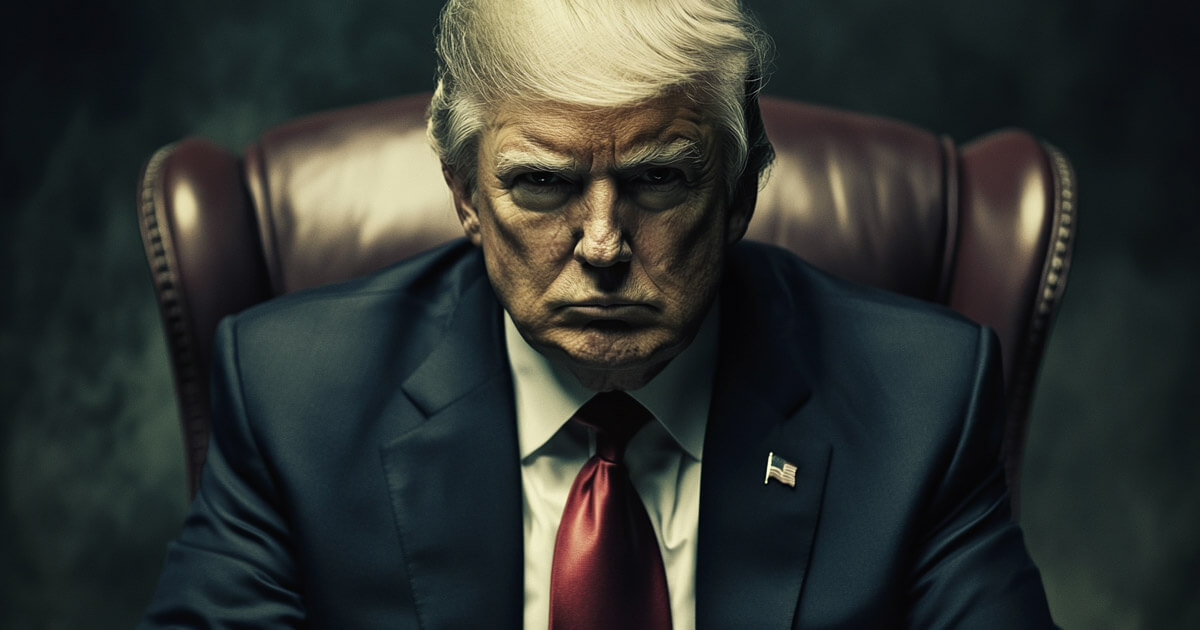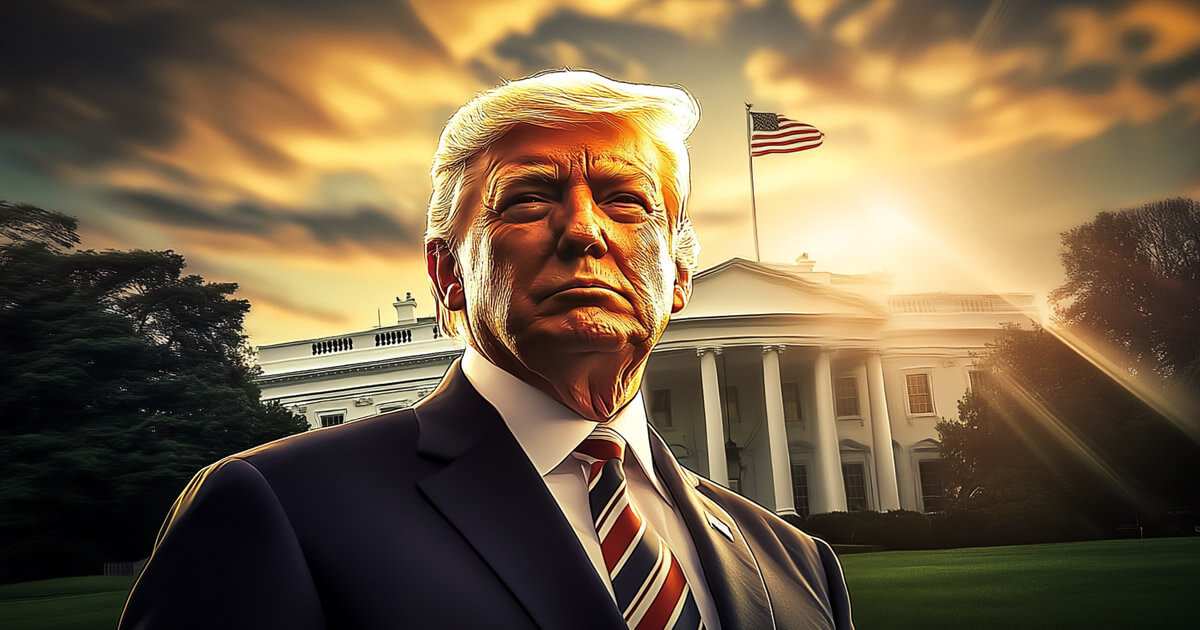Explore the intersection of cryptocurrency and US politics as Trump suggests one-time ‘never bitcoiner’ Jamie Dimon for Treasury head, while Ethereum’s Vitalik Buterin issues cautionary warnings and the official crypto policies of both parties enter a state of flux.
In recent developments intertwining cryptocurrency and US presidential politics, notable figures and their shifting stances have come under the spotlight. Former US President and current Republican presidential candidate Donald Trump has indicated a surprising shift in his views and potential cabinet choices.
In a recent interview, Trump suggested that JP Morgan CEO Jamie Dimon, once a vocal critic of Bitcoin and cryptocurrencies, might be considered for the role of Secretary of the Treasury. This marks a significant turn given Dimon’s historical skepticism, labeling Bitcoin a “fraud” as recently as 2017. Despite maintaining some reservations, Dimon has shown a softened stance, acknowledging the right to buy and hold Bitcoin and supporting blockchain technology.
Trump’s evolving perspective on cryptocurrencies coincides with broader political endorsements within the tech sector. Venture capital firm Andreessen Horowitz, led by Marc Andreessen and Ben Horowitz, has publicly shifted its support to Trump, citing his favorable policies on technology, including cryptocurrency and AI. This endorsement underscores a growing trend in traditionally Democratic Silicon Valley where tech leaders prioritize supportive policies over traditional political affiliations.
Conversely, Vitalik Buterin, the creator of Ethereum, has urged caution within the crypto community. In a recent blog post, Buterin warned against supporting political candidates solely based on their pro-crypto positions. He emphasized the importance of evaluating politicians on a broader spectrum of values, including their stance on internationalism and immigration. Buterin argued that aligning with politicians who lack a comprehensive and principled approach could undermine the foundational values of the crypto space.
These developments highlight the increasing influence of cryptocurrency and technology policies on US presidential politics, reflecting a complex and evolving landscape where endorsements and policy positions play pivotal roles.
Republican or Democratic? Crypto Policies Compared
Biden Administration’s Cryptocurrency Policies
The Biden administration has taken a cautious yet structured approach to cryptocurrency regulation. Key elements include:
- Executive Order on Digital Assets: Issued in March 2022, this order outlines a coordinated effort across federal agencies to develop policies and regulations for digital assets. The focus is on balancing innovation with risk mitigation, emphasizing consumer protection, financial stability, and combating illicit activities.
- Regulatory Framework and Enforcement: The administration has developed a framework to ensure the safe development of digital assets while addressing associated risks. This includes enhanced enforcement actions against fraudulent activities and increased guidance to protect consumers and the financial system.
- Budget Proposals and Taxation: Biden’s budget proposals have included provisions aimed at increasing tax revenues from cryptocurrencies. This includes expanding mark-to-market accounting rules to cover digital assets and imposing a tax on crypto mining operations. The administration expects these measures to generate significant revenue over the next decade.
- Consumer Protection and Financial Stability: The administration’s roadmap highlights the need for stringent measures to prevent cryptocurrencies from undermining financial stability. It includes efforts to enhance public awareness about the risks of cryptocurrencies and protect investors from fraudulent schemes.
Republican Party’s Cryptocurrency Policies
The Republican Party generally adopts a more pro-crypto stance, advocating for policies that promote innovation and minimize regulatory burdens. Key aspects include:
- In its 2024 GOP Platform ‘Make America Great Again’ policy document, released during the ongoing Republican Convention in Milwaukee, Wisconsin, the Republican Party made the following statement about cryptocurrencies. “Republicans will end Democrats’ unlawful and unAmerican Crypto crackdown and oppose the creation of a Central Bank Digital Currency. We will defend the right to mine Bitcoin, and ensure every American has the right to self-custody of their Digital Assets, and transact free from Government Surveillance and Control.”
- Support for Innovation and Reduced Regulation: Republicans often emphasize the need to foster technological innovation, including cryptocurrencies, by reducing regulatory hurdles. They argue that excessive regulation stifles growth and innovation in the crypto sector.
- Pro-Crypto Political Figures: Prominent Republicans, such as former president Donald Trump, have indicated support for more lenient crypto policies. Trump has suggested considering figures like JP Morgan CEO Jamie Dimon, who has shown a softening stance towards crypto, for significant roles in his administration, reflecting a more crypto-friendly approach.
- Venture Capital Endorsements: Influential figures in the tech and venture capital sectors, such as Marc Andreessen and Ben Horowitz, have publicly endorsed Republican candidates due to their supportive policies towards technology and cryptocurrencies. This reflects a broader alignment within the tech industry favoring the Republican approach to crypto regulation.
- Caution Against Over-Regulation: Republicans often caution against the potential negative impacts of over-regulation on the crypto industry, advocating for policies that support market growth and technological advancement.
Summary
The Biden administration focuses on a balanced approach to cryptocurrency regulation, emphasizing consumer protection, financial stability, and stringent enforcement against illicit activities. In contrast, the Republican Party tends to favor more pro-crypto policies, advocating for reduced regulation to foster innovation and growth within the sector. As the cryptocurrency landscape evolves, these differing approaches highlight the ongoing debate on how best to integrate digital assets into the broader financial system.
Credit: Source link















































